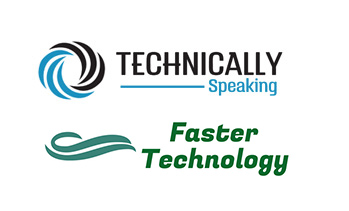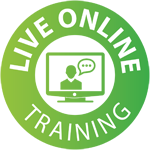Embedded Systems Training
Embedded Systems Hardware and Software Design is conveniently offered by Doulos as a single course, which combines the Embedded Systems Design, and Embedded Systems Software Design training.
View full course details, dates and locations for Embedded Systems training
Embedded Systems Software Design
Standard Level - Live Instructor-Led Training
2 days (In-Person) 8 hours per day or
3 sessions (Live Online) 6 hours per session
I am interested in a combination of training (contact Doulos to discuss your options) »
Course Description
This course introduces the concepts, tools, and techniques required for software design and development for the Zynq™ System on a Chip (SoC) and Zynq UltraScale+™ MPSoC using the Vitis™ unified software platform.
The focus is on:
- Reviewing the basics of Vitis tool use
- Customizing board support packages (BSPs) for resource access and management of the Xilinx Standalone library
- Utilizing device drivers effectively
- Developing software applications for the ARM® Cortex™-A9 processors
- Debugging and integrating user applications
- Employing best practices to enable good design decisions
Please note, hardware design concepts and procedures are not covered in this course, so Doulos recommends Embedded Systems Hardware and Software Design which combines appropriate Hardware and Software Design training in a 3-day course.
Software design engineers interested in system design and implementation and software application development and debugging using the AMD Standalone library
- C or C++ programming experience, including general debugging techniques
- Conceptual understanding of embedded processing systems including device drivers, interrupt routines, writing and modifying scripts, user applications and boot loader operation
- Vitis unified software platform
- Vivado™ Design or System Edition
- Architectures: Zynq-7000 SoC (Cortex-A9 processor), and Zynq UltraScale+ MPSoC (Cortex-A53 and Cortex-R5 processor)*
- Demo board: Zynq UltraScale+ MPSoC ZCU104 board*
* This course focuses on the Zynq-7000 SoC and C and the Zynq UltraScale+
MPSoC architectures. Please
contact Doulos for the specifics of the in-class lab board or other customizations.
After completing this comprehensive training, you will know how to:
- Implement an effective software design environment for an AMD embedded system using the AMD software development tools
- Write a basic user application (under Standalone or Linux) using the Vitis unified software platform and run it on an embedded system
- Use AMD debugger tools to troubleshoot user applications
- Apply software techniques to improve operability
- Maintain and update software projects with changing hardware
- Overview of Embedded Software Development
Overview of the process for building a user application. {Lecture}
- Embedded UltraFast Design Methodology
Outlines the different elements that comprise the Embedded Design Methodology. {Lecture, Demo}
- Zynq-7000 SoC Architecture Overview
Overview of the Zynq-7000 SoC architecture. {Lecture, Lab, Demo}
- Zynq UltraScale+ MPSoC Architecture Overview
Overview of the Zynq UltraScale+™ MPSoC architecture. {Lecture, Lab, Demo}
- Driving the Vitis Software Development Tool
Introduces the basic behaviors required to drive the Vitis tool to generate a debuggable C/C++ application. {Lecture, Lab, Demo}
- System Debugger
Describes the basics of actually running a debugger and illustrates the most commonly used debugging commands. {Lecture, Lab}
- Standalone Software Platform Development and Coding Support
Covers the various software components, or layers, supplied by AMD that aid in the creation of low-level software and includes a discussion on drivers, domains, operating systems, and libraries. Also covers the basic services (libraries) available when coding in the Standalone environment. {Lecture, Lab, Demo}
- FAT File System for Standalone
Introduces the FAT file system (FFS) from the Standalone/Bare-metal library. The FFS provides drivers and utilities for effectively converting a region of memory into a file system. {Lecture, Lab}
- Using Linker Scripts
Overview of the purpose and typical use of a linker script. {Lecture, Lab}
- Migrating from SDK to the Vitis Platform
Overview of migrating existing AMD SDK projects to Vitis software development projects. {Lecture, Demo}
- Introduction to Interrupts
Introduces the concept of interrupts, basic terminology, and generic implementation. {Lecture}
- Software Interrupts: Writing
Describes many of the considerations that a software coder must take into account when supporting interrupts. {Lecture, Lab}
- Operating Systems: Introduction and Concepts
Introduces the concept of the operating system and provides a simplified view into the generic way that operating systems work. {Lecture}
- Linux: A High-Level Introduction
Introduces the Linux operating system, a brief history, and how to use it. {Lecture}
- Linux Software Application Development Overview
Highlights important parts of the underlying Linux system as it pertains to applications. {Lecture, Lab, Demo}
- Driving the PetaLinux Tool
Introduces the basic concepts required to build an application using the PetaLinux tool. {Lab}
- Building a Linux Application in the Vitis IDE
Provides an introduction to using the AMD Vitis IDE tool for Linux software development. {Lecture, Demo}
- Booting Overview
Describes the main points to how booting a processor is handled for Zynq SoC devices and MicroBlaze processors. {Lecture, Lab}
- Software Profiling Overview
Introduces the purpose and techniques for profiling a user application. {Lecture, Lab, Demo}
- Understanding Device Drivers
Explains the concept of a device driver and how it is used by embedded systems. {Lecture, Demo}
- Custom Device Drivers
Describes how to successfully write a custom device driver. {Lecture, Lab}




